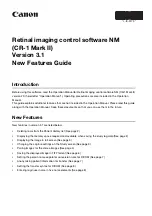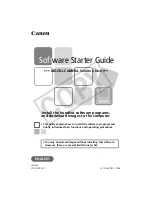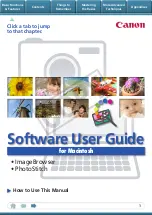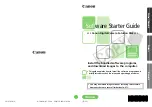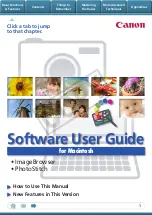
About security
19
To find out what permissions a logged-in user has for a particular item, call the
permissions-info
action. To change a principal’s permissions, call the
principal-update
action.
If a particular principal has no explicitly specified permissions on a particular SCO, that
principal’s permissions on the SCO’s parent apply.
You can specify the following permissions on a SCO:
view
The principal can view the SCO but not modify it. For a course, the
view
permission lets
the principal enroll in the course. For a meeting,
view
lets the principal attend the meeting. For a
folder,
view
lets the principal view the contents of the folder.
publish
The principal can publish the SCO to the server and can update the SCO. This
permission includes the
view
permission. It also lets the principal view reports related to the
SCO. For a folder,
publish
doesn’t let the principal create new folders within the folder or to set
permissions for the folder. You cannot specify this permission on meetings or courses.
manage
The principal can view, delete, move, and edit the SCO. This permission also lets the
principal set permissions for the SCO. For a folder, the
manage
permission lets the principal view
reports for files in the folder and create new folders. You cannot specify this permission on
meetings or courses.
denied
The principal cannot view, access, or manage the SCO. You cannot specify this
permission on meetings or courses.
presenter
(For meetings only) The principal can create or present a meeting. This permission
lets the principal create or present the meeting, even if the principal doesn’t have
view
permission
on the meeting’s parent folder.
Because a group is a principal, you can set these permissions on a SCO for a nonprimary group as
well as for an individual user; if a group has a particular permission, all members of the group
have that permission. Use the
group-membership-update
action to add a member to a group.
Use the
permissions-update
action to set a group’s permissions for a particular SCO.
The only way to obtain certain other kinds of permissions is to be a member of a primary group,
as follows:
The account authors primary group
lets its members create or edit a presentation anywhere in
the system, regardless of the ACL permissions.
The account administrators primary group
can manage users and groups.
The account meeting administrators primary group
can create and present meetings anywhere
in the system, regardless of the ACL permissions.
The course managers primary group
can create and edit courses anywhere in the system,
regardless of the ACL permissions.
To have full access to the entire system, you must be a member of all four primary groups.
Summary of Contents for BREEZE-USING THE BREEZE XML WEB SERVICES
Page 1: ...Using the Breeze XML Web Services...
Page 8: ...8 Contents...
Page 12: ...12 Introduction Before You Begin...
Page 26: ...26 Chapter 2 Working with Filters...
Page 36: ...36 Chapter 3 Common Tasks...
Page 112: ...112 Chapter 4 Action Reference...
Page 186: ...186 Chapter 5 XML Results Reference...
Page 196: ...196 Index...































